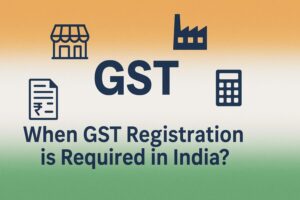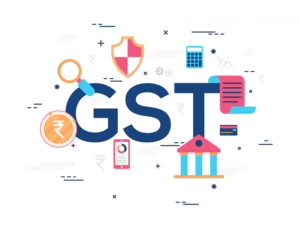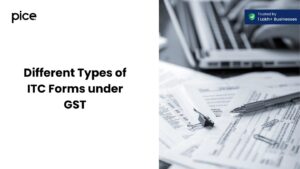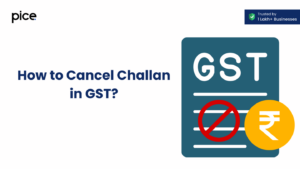GST and Works Contracts: Understanding the Impact on Construction and Services
- 11 Aug 24
- 9 mins

GST and Works Contracts: Understanding the Impact on Construction and Services
- Works Contracts Before the Introduction of GST
- Understanding the Composition Scheme for Service Providers
- Service tax rate on works contract composition scheme
- How Service Providers Can Register for the Composition Levy?
- Eligibility Criteria for the Composition Scheme
- Exclusions: Service Providers Ineligible for the Composition Scheme
- Analyzing the Differences: Standard vs. Composition Scheme
Key Takeaways
- The GST unified tax rates for works contracts, simplifying the complex dual taxation system of VAT and Service Tax that existed pre-GST.
- The Composition Scheme under GST offers small taxpayers, including service providers for works contracts, a simplified compliance and tax payment process at a reduced rate.
- Composition taxpayers cannot claim the credit of input tax, emphasizing the need to weigh the benefits of simplified tax compliance against potential financial advantages.
- Eligibility for the Composition Scheme is determined by specific criteria, including annual turnover limits and restrictions on interstate supplies and certain types of sales.
- The introduction of GST and the Composition Scheme has streamlined business compliances and tax payments for works contracts, benefiting both service providers and consumers.
Works Contracts Before the Introduction of GST
Before the implementation of the Goods and Services Tax (GST) in India, works contracts were enveloped in a complex tax environment. A works contract, essentially a contract for both services and goods in projects such as construction, repair, or installation, was taxed under both the Value Added Tax (VAT) system administered by states for the supply of goods and the Service Tax regulated by the central government for services. This dual taxation often led to a cascading effect of taxes, where tax was levied on a value inclusive of taxes already paid. This system not only made compliance cumbersome for businesses involved in works contracts but also increased the overall tax burden on the end consumer, leading to higher costs in the construction and infrastructure sector.
Understanding the Composition Scheme for Service Providers

With the advent of GST, the Composition Scheme emerged as a boon for small taxpayers, including service providers. Specifically tailored to simplify GST compliance and reduce the tax burden, this scheme allows eligible service providers to pay GST at a fixed rate of their turnover instead of the standard GST rates. This rate is significantly lower and is intended to simplify the tax filing process, making it an attractive option for small businesses and startups.
For service providers, including those engaged in works contracts, opting into the Composition Scheme can mean less time spent on bookkeeping and tax filings, and more on business operations. However, it's important to note that service providers opting for this scheme are subject to certain restrictions, such as a cap on annual turnover and limitations on interstate supplies, emphasizing the need for businesses to carefully assess their eligibility and the scheme's suitability for their operations.
Service tax rate on works contract composition scheme
For works contracts, which encompass both goods and services within the construction sector, the GST regime has streamlined taxation by imposing a unified rate. Generally, these contracts are taxed at an 18% rate under GST, encompassing a broad range of construction and related services. This consolidation under a single tax rate significantly simplifies the earlier complex tax structure, making it easier for businesses to comply and reducing the overall tax burden by eliminating the cascading effect of taxes. The uniform rate aims to bring transparency and efficiency to the sector, benefiting both service providers and consumers.
How Service Providers Can Register for the Composition Levy?
Service providers interested in availing of the benefits offered by the GST Composition Scheme need to follow a structured process for registration. Firstly, they must ensure their eligibility, which primarily involves having an annual turnover below a specific threshold, currently set at Rs. 50 lakhs for service providers.
To register, service providers should log on to the GST portal and opt for the GST Composition Scheme during their initial GST registration process or through a subsequent amendment to their existing GST registration. The process involves filling out the necessary forms and providing accurate business details. Once registered under the scheme, service providers are subject to the scheme's rules and limitations, such as not engaging in interstate supplies and adhering to the turnover cap, while benefiting from a lower tax rate and simplified compliance requirements.
| Aspect | Standard GST Scheme | Composition Scheme |
|---|---|---|
| Composition Tax Rates | Ranges from 5% to 28% based on goods and services | Fixed lower rate: 1% for manufacturers and traders, 5% for restaurants, 6% for other eligible service providers |
| Compliance Requirements | Detailed tax invoice-wise data reporting, monthly return filings | Simplified record-keeping, quarterly return filings |
| Eligibility | All businesses subject to GST | Normal taxpayers with turnover up to Rs. 1.5 crores for goods, Rs. 50 lakhs for services |
| Input Tax Credit | Available | Not available |
| Inter-state Supply | Allowed | Not allowed |
| Applicable to | All taxable goods and services | Specific small taxpayers, excluding certain service providers like those engaged in interstate supplies |
💡If you want to pay your GST expenses with Credit cards, then download Pice Business Payment App. Pice is a one stop business payment app for all business related payments.
Eligibility Criteria for the Composition Scheme
The Composition Scheme under GST is designed for regular taxpayers seeking to simplify their tax obligations. To be eligible, businesses must meet specific criteria: their annual turnover must not exceed Rs. 1.5 crores for goods providers or Rs. 50 lakhs for service providers, including works contract services. Additionally, they must not be engaged in making any interstate supplies, non-taxable supplies, or supplying through e-commerce platforms that require tax collection at source. Importantly, the scheme is voluntary, offering a simplified tax rate but requiring compliance with its restrictions.

Exclusions: Service Providers Ineligible for the Composition Scheme
Certain service providers are explicitly excluded from opting into the Composition Scheme due to the nature of their business activities. These exclusions include service providers engaged in interstate supplies, supplying non-taxable goods or services, e-commerce operators involved in supplies requiring tax collection at source, and those providing services not permissible under the scheme such as restaurant services that serve alcohol. This ensures the scheme remains targeted toward small and medium-sized enterprises (SMEs) with relatively simpler business models.
Analyzing the Differences: Standard vs. Composition Scheme
The key difference between the standard GST scheme and the Composition Scheme lies in tax rates, compliance requirements, and eligibility. The standard scheme subjects businesses to regular GST rates (ranging from 5% to 28% based on goods and services) and requires detailed invoice-wise data reporting, allowing for input tax credit claims. In contrast, the Composition Scheme offers a significantly lower tax rate (1% for manufacturers and traders, 5% for restaurants, and 6% for other eligible service providers), but restricts businesses from claiming input tax credits and engaging in interstate supplies. Additionally, while the standard scheme requires monthly return filings, the Composition Scheme reduces this burden to quarterly filings, simplifying compliance for eligible small businesses.




















